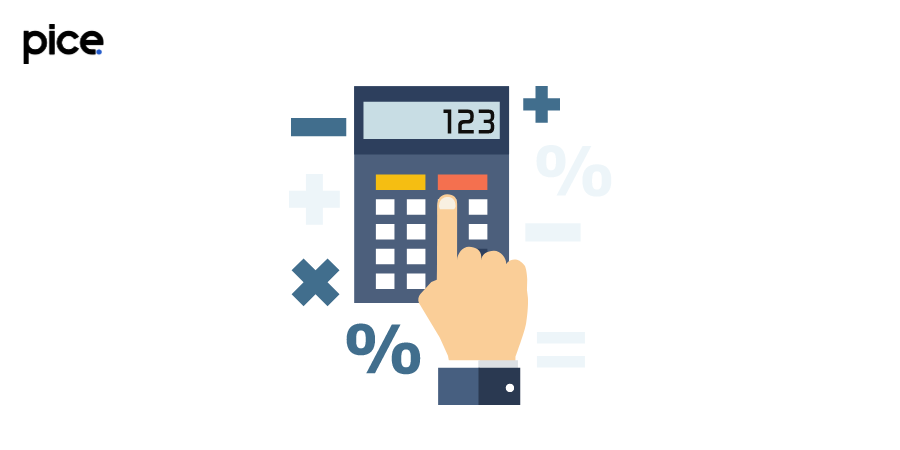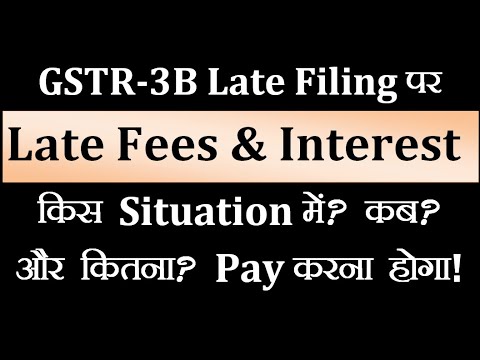Key Takeaways
- Timely GST Payments: Avoid late fees and interest by paying GST on time.
- Accurate Filing: Ensure accurate and timely filing of GST returns to stay compliant.
- Late Fee Structure: Understand the late fee structure: ₹50/day for regular returns, ₹20/day for NIL returns.
- Interest Rate: Late GST payments incur an interest rate of 18% per annum.
- Compliance Tips: Use reminders and professional help to maintain GST compliance and avoid penalties.
GST, or Goods and Services Tax, is a comprehensive indirect tax levied on the supply of goods and services in India. It has replaced many indirect taxes previously in place, creating a unified tax system.
Importance of Timely GST Payments

Timely GST payments are vital for several key reasons:
- Avoiding Extra Costs
Late GST payments lead to late fees and interest charges, which can quickly add up. By paying on time, you avoid these unnecessary expenses and maintain financial stability.
- Ensuring Compliance
Meeting GST deadlines keeps your business compliant with tax regulations, reducing the risk of audits and legal issues. It shows your commitment to following the law.
- Maintaining Reputation
Consistently paying GST on time helps build trust and credibility with suppliers, partners, and customers, enhancing your business’s reputation.
- Better Cash Flow Management
Timely payments reflect effective cash flow management, ensuring your business can meet its financial obligations and plan for future growth.
- Accurate Financial Records
Paying GST on time helps keep your financial records accurate and up-to-date, which is essential for planning, reporting, and auditing.
- Contributing to the Economy
On-time GST payments support the national economy by providing the government with funds needed for public services and infrastructure.
GST Late Fee Calculator
How to Use the GST Late Fee Calculator
Using a GST late fee calculator is straightforward. Here’s a step-by-step guide:
- Select the Type of Return: Choose the type of GST return you are filing, such as GSTR-3B, GSTR-1, etc.
- Enter the Due Date: Input the due date by which the return was supposed to be filed.
- Enter the Actual Filing Date: Provide the actual date on which you filed the return.
- Input Business Turnover: Enter the turnover of your business for the relevant period.
Once you input these details, the calculator will automatically compute the late fee based on the prescribed rates and the number of days the filing was delayed.
Features of the GST Late Fee Calculator
- User-Friendly Interface: Easy to navigate, ensuring quick and accurate calculations.
- Multiple Return Types: Supports various types of GST returns, including GSTR-3B, GSTR-1, GSTR-9, and more.
- Accurate Calculations: Provides precise late fee amounts based on the latest GST regulations.
- Time-Saving: Eliminates manual calculations, saving time and reducing the risk of errors.
- Detailed Breakdown: Offers a clear breakdown of the late fee, showing how the total amount is derived.
- Up-to-Date Information: Regularly updated to reflect any changes in GST rules and rates.
Using a GST late fee calculator helps ensure that you stay compliant with tax regulations while managing your finances efficiently.
GST Interest Calculator
How to Calculate Interest on Late GST Payments
- To calculate interest on late GST payments, you need to know the Tax period of delay and the applicable interest rate. The standard interest rate is 18% per annum.
Example Calculation
For instance, if you have a GST liability of ₹10,000 and you delay the payment by 30 days, the interest would be:
Interest = ₹10,000 * 18% / 365 * 30 = ₹147.95
Penalty for Filing Late Return
Filing GST returns late can result in significant penalties. Understanding these penalties can help you avoid unnecessary costs and maintain compliance with tax regulations.

What Constitutes a Late Return?
A GST return is considered late if it is filed after the due date specified by the GST authorities. The due date varies depending on the type of return and the taxpayer category.
Penalties Imposed for Late Filing
- Fixed Late Fees:
- For most GST returns, the late fee is ₹50 per day (₹25 CGST and ₹25 SGST).
- For NIL returns (where there is no tax liability), the late filing fee is reduced to ₹20 per day (₹10 CGST and ₹10 SGST).
- Maximum Cap:
- The maximum late fee for GSTR-3B is capped at ₹5,000.
- For GSTR-1, the maximum late fee is also capped at ₹5,000.
- Interest on Outstanding Tax:
- In addition to late fees, interest is charged on any outstanding GST liability at the rate of 18% per annum. This is calculated from the due date of the payment until the actual payment date.
- Additional Penalties for Repeated Non-Compliance:
- Persistent late filing can lead to more severe penalties, including potential audits and scrutiny from tax authorities.
- In extreme cases, it can result in the cancellation of GST registration, leading to a halt in business operations.
Mitigating Penalties
- Timely Filing: The most effective way to avoid penalties is to file your GST returns on time. Set reminders and use automated systems to ensure deadlines are met.
- Accurate Reporting: Ensure that all information provided in your returns is accurate to avoid discrepancies that could lead to penalties.
- Regular Reconciliation: Regularly reconcile your accounts to identify and correct any issues before filing returns.
- Seek Professional Help: Consider consulting a tax professional to help manage your GST compliance and avoid penalties.
Understanding and adhering to GST filing deadlines is crucial for avoiding penalties and maintaining smooth business operations.
Interest on Late Payment of GST
How is Interest Calculated?
Interest is calculated based on the amount of GST due and the number of days the payment is delayed. The formula is:
Interest = GST due * Interest rate * (Days of delay / 365)
Scenarios Leading to Interest Imposition
Interest is imposed in scenarios such as late filing of returns, late payment of GST, and incorrect reporting of GST liability.
GSTR-3B and GSTR-1 Late Fee Calculation

the late fee structure for GSTR-3B and GSTR-1 is essential for businesses to avoid unnecessary expenses and ensure compliance with GST regulations.
Late Fees for GSTR-3B
GSTR-3B is a monthly self-declaration return that businesses must file to report summary details of outward and inward supplies, and pay the tax liability.
- Standard Late Fee:
- ₹50 per day (₹25 CGST and ₹25 SGST) is charged for delayed filing.
- For NIL returns (where there is no tax liability), the late fee is reduced to ₹20 per day (₹10 CGST and ₹10 SGST).
- Maximum Cap:
- The maximum late fee for GSTR-3B is capped at ₹5,000.
Example Calculation: If a business files its GSTR-3B return 10 days late and has a tax liability, the late fee would be: ₹50 per day * 10 days = ₹500.
Late Fees for GSTR-1
GSTR-1 is a return that captures the details of all outward supplies of goods and services. It can be filed monthly or quarterly, depending on the turnover of the business.
- Standard Late Fee:
- ₹200 per day (₹100 CGST and ₹100 SGST) for delayed filing of regular returns.
- For NIL returns, the late fee is reduced to ₹100 per day (₹50 CGST and ₹50 SGST).
- Maximum Cap:
- The maximum late fee for GSTR-1 is also capped at ₹5,000.
Example Calculation: If a business files its GSTR-1 return 5 days late and has reportable transactions, the late fee would be: ₹200 per day * 5 days = ₹1,000.
Late Fees for GSTR-9 and GSTR-9A
GSTR-9 and GSTR-9A are annual returns that provide a comprehensive summary of the annual financial data for businesses registered under GST. Filing these returns on time is crucial to avoid late fees and ensure compliance with GST regulations.
Importance of Annual Returns
Annual returns (GSTR-9 and GSTR-9A) consolidate the information provided in the monthly or quarterly returns filed during the financial year. They are essential for:
- Providing a comprehensive summary of the financial data.
- Ensuring transparency and accuracy in reporting.
- Helping in the reconciliation of input tax credits and tax liabilities.
Calculating Late Fees for GSTR-9 and GSTR-9A
GSTR-9 & GSTR-9A is the annual return for regular taxpayers registered under GST.
- Standard Late Fee:
- ₹200 per day (₹100 CGST and ₹100 SGST) for delayed filing.
- There is no provision for a reduced fee for NIL returns under GSTR-9 & GSTR-9A.
- Maximum Cap:
- The maximum late fee is capped at 0.25% of the taxpayer’s turnover in the relevant state or union territory.
Late Fees for GSTR-10
GSTR-10 is the final return that must be filed when a GST registration is canceled or surrendered.
Filing Requirements
- Due Date: Must be filed within three months of the cancellation date or the date of the cancellation order, whichever is later.
Late Fees
- Standard Late Fee:
- ₹200 per day (₹100 CGST and ₹100 SGST) for each day the filing is delayed.
- Maximum Cap:
- There is no specified maximum cap for the late fee in GSTR-10, meaning the fees can accumulate indefinitely until the return is filed.
Example Calculation: If you file GSTR-10 5 days late, the late fee would be: ₹200 per day * 5 days = ₹1,000.
Interest on Late Payment of GST
Timely payment of GST is crucial to avoid interest charges. Here’s a brief overview of how interest on late GST payments is calculated and its implications.
Interest Rate
- Standard Rate: 18% per annum.
Calculation
- Formula: Interest=Outstanding GST×(36518%)×Days of Delay
Example Calculation: If you have an outstanding GST of ₹10,000 and delay the payment by 30 days:
Interest=₹10,000×(36518%)×30=₹147.95
- Accumulation of interest charges.
- Increased financial burden.
- Potential scrutiny from tax authorities.
Penalty on Missing the GST Due Date
Missing the GST due date can lead to significant penalties. Here’s a brief overview of the penalties imposed and their implications.
Types of Penalties
- Fixed Late Fees:
- ₹50 per day (₹25 CGST and ₹25 SGST) for regular returns.
- ₹20 per day (₹10 CGST and ₹10 SGST) for NIL returns.
- Interest Charges:
- 18% per annum on the outstanding tax amount.
Rules Applicable to GST Payment for Taxpayers
The rules for GST payments is essential for compliance and smooth business operations. Here are the key points:
Payment Deadlines
- Monthly Returns: GSTR-3B and GSTR-1 must be filed monthly or quarterly, depending on turnover.
- Annual Returns: GSTR-9 and GSTR-9A are filed annually.
Late Fees and Interest
- Late Fees: ₹50 per day (₹25 CGST and ₹25 SGST) for regular returns, ₹20 per day (₹10 CGST and ₹10 SGST) for NIL returns.
- Interest: 18% per annum on delayed payments.
Payment Methods
- Online Payment: Through the GST portal using net banking, credit/debit cards, or NEFT/RTGS.
- Challan: Generate a challan online for offline payments at authorized banks.
Conclusion
Understanding and managing GST late fees, penalties, and interest is crucial for businesses to maintain financial health and compliance. Utilizing online calculators can simplify this process and help avoid costly mistakes
💡Learn more about how our Pice can help you make all your important business payments, like supplier and vendor payments, rent, GST, & utility, from one single dashboard with your credit card. Request a demo now.
FAQs
What are the interests and late fees under the GST Act?
Under the GST Act, the interest rate for late payments is 18% per annum. Late fees for filing returns after the due date are ₹50 per day (₹25 CGST and ₹25 SGST) for regular returns and ₹20 per day (₹10 CGST and ₹10 SGST) for NIL returns.
How to calculate Interest and Late Fee?
Interest is calculated using the formula: Interest=Outstanding GST×(365/18%)×Days of Delay. To calculate late fees, multiply the number of days late by the daily late fee rate appropriate for the type of return.
What is Late Fees for GSTR 3B?
The late fees for GSTR-3B are ₹50 per day (₹25 CGST and ₹25 SGST) for regular returns and ₹20 per day (₹10 CGST and ₹10 SGST) for NIL returns, with a maximum cap of ₹5,000.
How to calculate GSTR 3B late fees?
To calculate GSTR-3B late fees, multiply the number of days delayed by the daily fee rate: ₹50 per day for regular returns or ₹20 per day for NIL returns. For example, 10 days late for a regular return would be 10 x ₹50 = ₹500.
Can we file GSTR-3B without paying late fees?
No, you cannot file GSTR-3B without paying the applicable late fees. The GST portal requires payment of any outstanding late fees before allowing the submission of the return.








